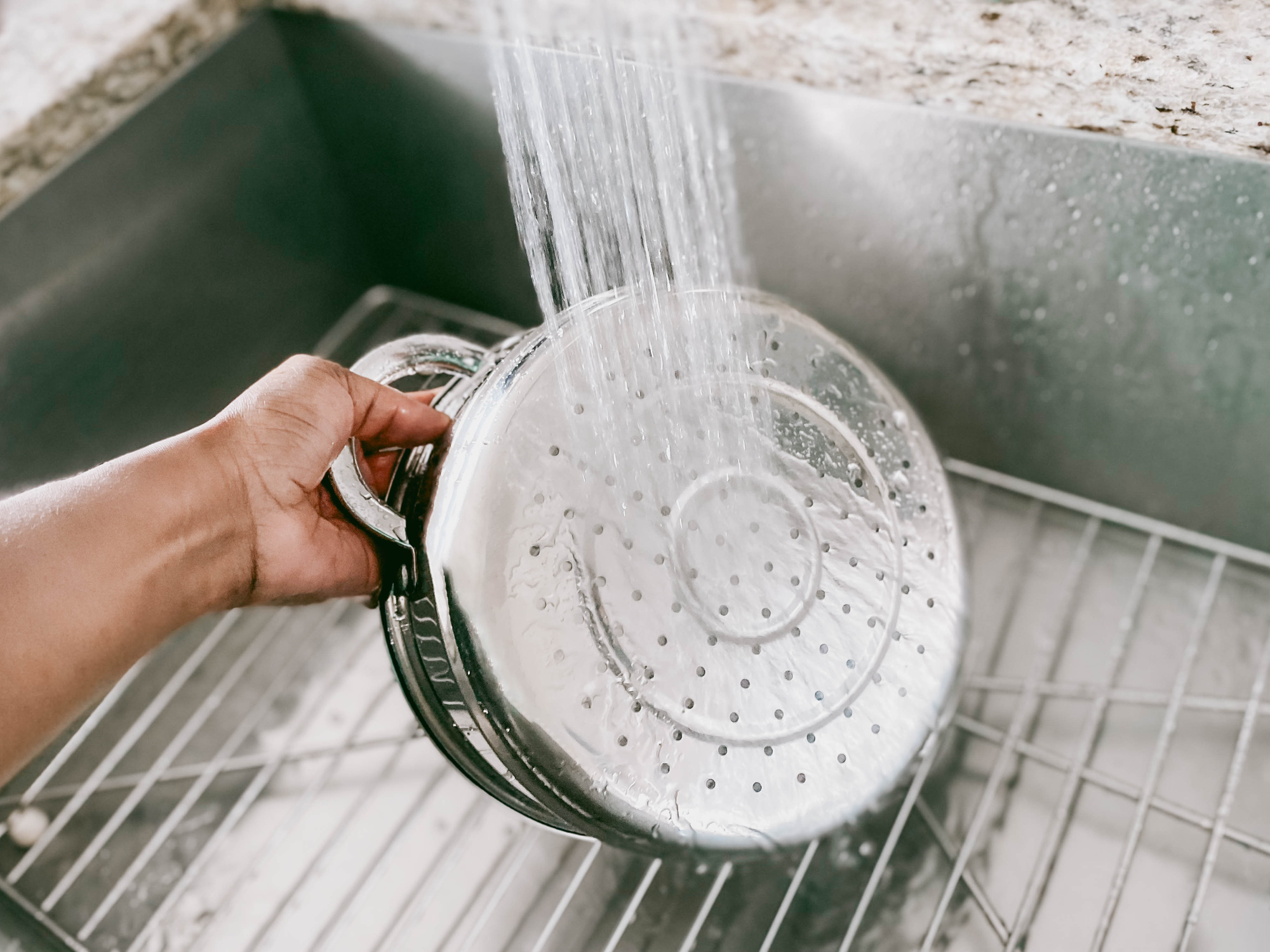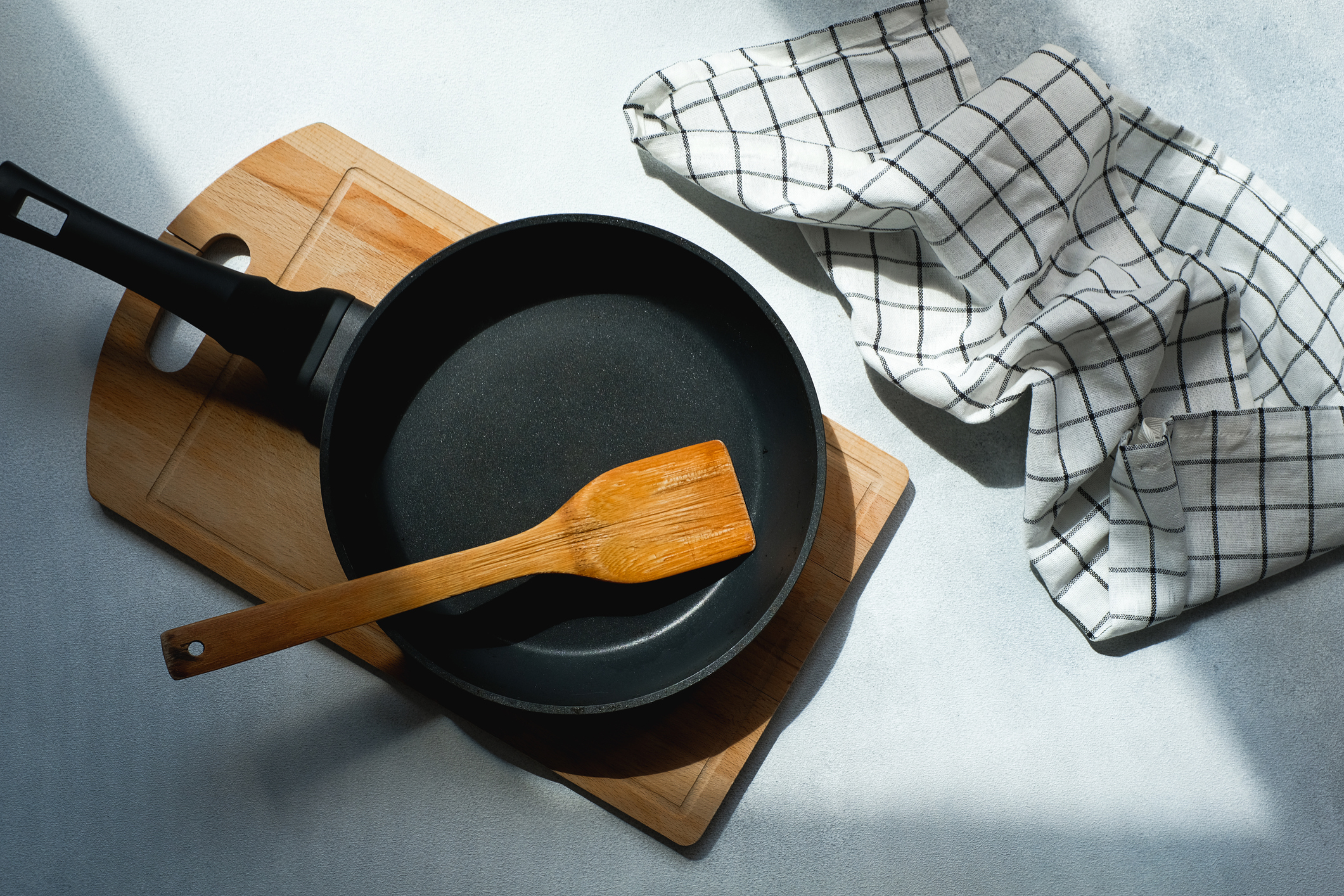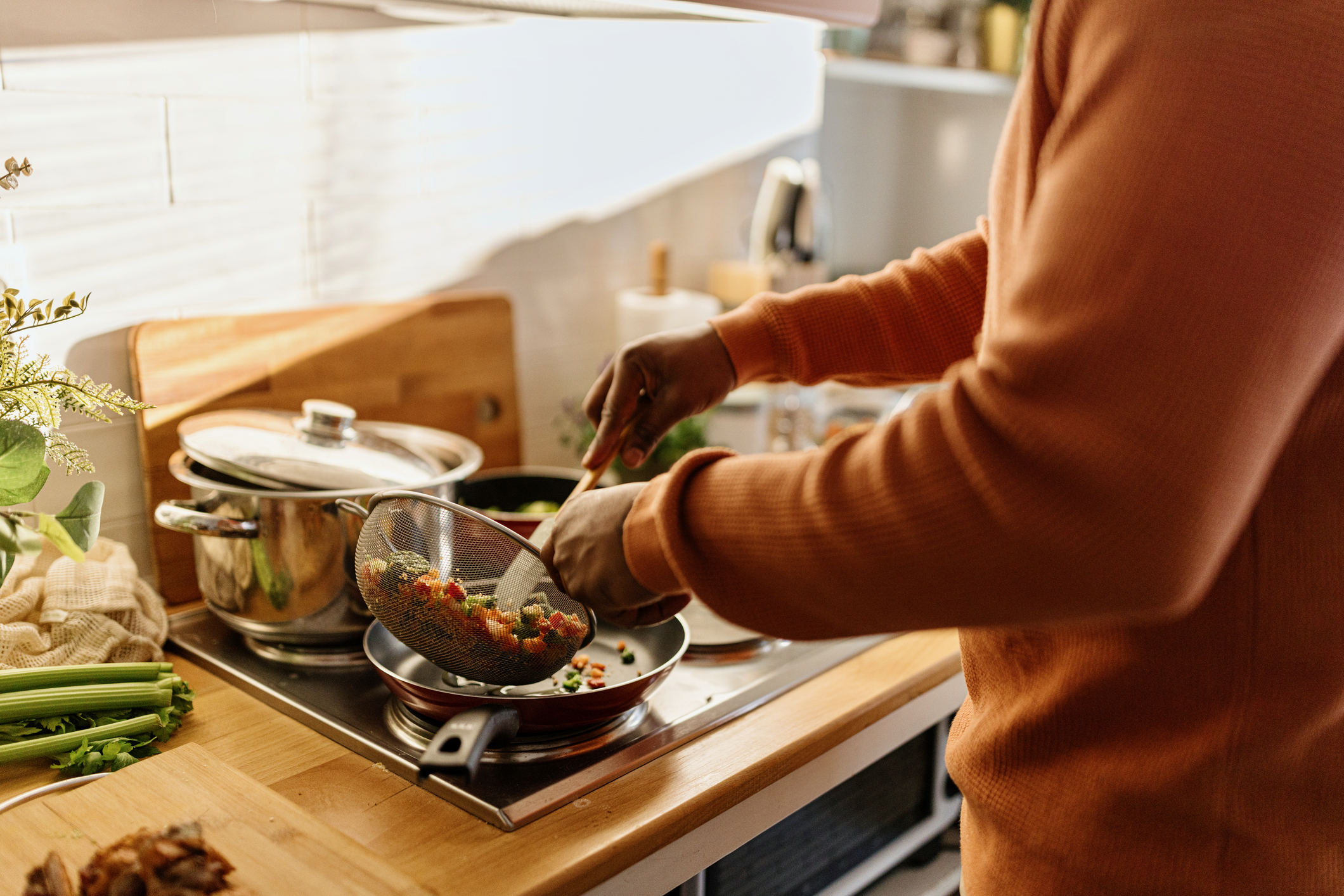You love your pots and pans, but cleaning them can sometimes feel complicated. Certain types of cookware can’t under any circumstances go in the dishwasher, while other seemingly durable varieties might get easily damaged with the rough side of a scrub brush. Whether you’re a seasoned chef or someone who still confuses a colander with a calendar, understanding how to keep your cookware in tip-top shape is essential.
The Basics of Pot and Pan Care
Your kitchen’s pots and pans endure high heat, occasional drops, and the daily grind of meal prep. Without proper care, they can lose their non-stick magic, rust, or even warp. Here’s how to prevent these culinary catastrophes.


Know your material.
Not all pots and pans are created equal. Understanding the material your cookware is made from will guide you on the best care practices.
- Stainless Steel: Durable and resistant to rust, but prone to staining and discoloration.
- Non-Stick: Easy to clean but requires gentle handling to avoid scratching the surface.
- Cast Iron: Heirloom-worthy but needs regular seasoning to maintain its non-stick surface.
- Copper: Beautiful and excellent at conducting heat but needs frequent polishing to keep its shine.
- Enamel: Combines the best of both worlds, but can chip if mishandled.
Taking a Gentle Approach
If you’ve ever burned oatmeal or scrambled eggs to an unrecognizable mess, you know the struggle of cleaning pots and pans. But before you reach for that steel wool, first consider more gentler methods.
The Do’s and Don’ts of Cleaning
- Do: Use warm, soapy water and a soft sponge. For stubborn residue, a soak can work wonders.
- Don’t: Use abrasive cleaners or scouring pads, which can damage the surface of your cookware.
- Do: Dry your pots and pans immediately after washing to prevent water spots and rust.
- Don’t: Put non-stick or cast iron cookware in the dishwasher—ever. This is a one-way ticket to ruined pans.


Seasoning Your Cast Iron
Properly cared for, a cast iron skillet can last for generations. But what’s the secret to keeping it in pristine condition? Two words: seasoning and love.
How To Season Your Cast Iron
- Clean Thoroughly: Start with a clean skillet. If it’s new, wash it with warm, soapy water (this is the only time soap should touch your cast iron). If it’s older, scrub off any rust or residue.
- Dry Completely: Moisture is the enemy. Use a towel to dry your skillet thoroughly.
- Oil Up: Apply a thin layer of vegetable oil or melted shortening to the entire surface of the skillet, inside and out.
- Bake It: Place your skillet upside down in the oven at 375°F (with a sheet of aluminum foil on the rack below to catch drips). Bake for one hour, then let it cool in the oven.
Non-Stick Cookware
Non-stick pans are a godsend for easy cooking and cleanup, but they need a bit of extra TLC to keep their coating intact.
High heat can damage the non-stick coating, so keep the flames on the lower side. You’ll also want to use the right kind of utensils. Metal utensils are also a no-go. Stick to wood, silicone, or plastic to avoid scratches. When they do get dirty, hand-wash only. As tempting as it is to toss everything in the dishwasher, resist the urge with non-stick cookware.
Stainless Steel
Stainless steel is the trusty staple of the kitchen world—reliable, sturdy, and can handle pretty much anything you throw at it. But even the best of the best need a bit of upkeep. While stainless steel can handle high temperatures, it’s best to avoid extremes to prevent warping. Keep it polished by using a stainless steel cleaner or a mixture of vinegar and water to keep your cookware shiny. For stubborn stains, a paste of baking soda and water can work wonders. Apply, let it sit, then scrub gently.
Copper Cookware
Copper pots and pans are the showstoppers of the kitchen. They’re stunning and excellent conductors of heat, but they require regular polishing to maintain their luster. Make sure to use the right cleaner, first and foremost! A commercial copper cleaner or a homemade mix of lemon juice and salt can keep your copper shining. Like many other types of cookware, copper doesn’t fare well in the dishwasher.
